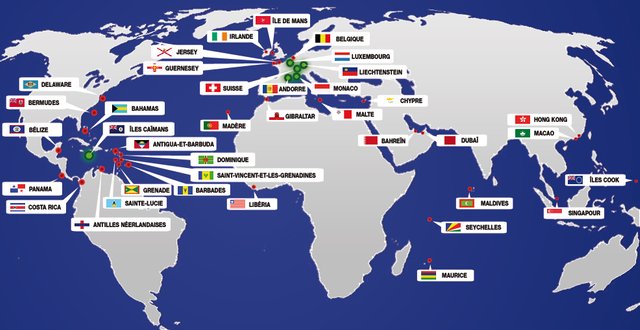Fiscal paradise
Definition of tax haven

A tax haven is a country or territory where taxation is very low compared to what the speaker thinks is the norm. It is therefore defined relatively and for certain areas of activity. The definition can also apply to part of a country. Thus, a "free zone" constitutes a tax haven within a country where taxation is high.
For the OECD, "there is no single, clear and objective criterion for identifying a country as a tax haven". The French Tax Code uses a euphemism, preferring to speak of "privileged tax country".
Some characteristics of tax havens:
low level of taxation and reduced public spending,
economic and political stability,
freedom of exchange,
commercial secret and unshakeable banking secrecy,
highly developed financial sector,
judicial impunity for circumventing the laws of other states.
In general, tax havens are very small territories, often islands, which offset a low tax rate by a very large volume of operations worldwide. They have become an essential component in the tax strategy of multinational companies that set up holding companies where they can show their profits.
Examples of tax havens: The Virgin Islands, the Cayman Islands, Samoa, The Bahamas, Monaco, Andorra, Lichtenstein ...
A group of NGOs and associations, including Attac, leads an international campaign for the establishment of a system of banking secrecy and sanctions for unfair tax competition. Indeed, tax havens deprive other states of resources that could have been allocated to social projects. In addition, the opacity of capital transfers, particularly those of corruption and embezzlement of public funds, is accused of penalizing the development of the poorest states.